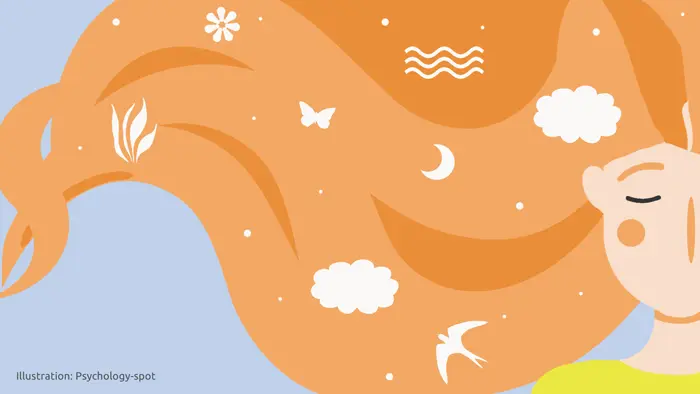
If you think that you would be happier if your partner, parents, friends, the government or even the world itself changed, it is likely that you are suffering from what is known as the “Fallacy of Change”. Obviously, imagining a better world and striving to achieve it is not negative, but conditioning your happiness for that change to take place is usually a sword of Damocles that, sooner or later, will fall on your head.
What exactly is the Fallacy of Change?
The fallacy of change is a cognitive distortion that consists of thinking that our well-being and happiness depend on others changing. In practice, we feel the need to change those around us because we believe that this is the only way we can feel good, so we place our hopes in that transformation taking place.
The fallacy of change makes us think that things would be fine if only we could influence more the others. We believe that everything would be better if the others changed. Therefore, at its base is the erroneous belief that our well-being depends on the actions of others and the idea that we have the power to influence their decisions, attitudes and behaviors.
Why can’t the change of the others guarantee us happiness?
The fallacy of change sets a trap for us by making us think that our happiness depends on the others. We develop an external locus of control by attributing our well-being almost exclusively to what the others do, think, or feel.
We believe that to satisfy our needs, it is the others who have to change. We think things like “if my partner changed, we would have a great relationship”, “I would be happy if my boss changed”, or even “it would be better if the government changed”. The syntax is always the same: “if only I changed such a thing, then I could…”.
Without a doubt, having a more caring partner, a more understanding boss, or a government that better understands the needs of its citizens could improve our lives and make us happier. However, subordinating our well-being and conditioning our happiness to the change of third parties is like subordianting our life without any guarantee.
Putting ourselves in the hands of others actually condemns us to a state of permanent dissatisfaction, since we are unlikely to achieve those ideal relationships or those perfect circumstances. As a result, we condemn ourselves to pursuing the impossible.
Placing our hopes on the other to change also implies, in a certain way, assuming an egocentric attitude in which we assume that the world revolves around us, in such a way that it must adapt to our needs and desires. Life doesn’t work like that. And the sooner we assume it, the better.
Dedicating our efforts to achieve the change we want in others, often without even asking ourselves if the other people want or are willing to change, is usually a doom to fail.
Believing that if the others changed, everything would be better, and then trying to force them to do so, will only create tension and conflict. We will end up wasting precious energy that we could have used developing more adaptive strategies to deal with our reality.
How to counter the Fallacy of Change and regain control of your life?
Albert Ellis thought that “There are three musts that hold us back: I must do well. You must treat me well. And the world must be easy.” Ellis, who based his theory on Stoic philosophy, which held that emotional disturbance does not depend directly on the situation, but on the interpretation we give it, considered that we all develop different irrational beliefs that color our way of seeing the world and way of reacting to events.
The fallacy of change is based precisely on many of these irrational beliefs, such as thinking that “human misfortune is due to external causes”, that “it is terrible that things do not go as we had planned” or that “significant people must love and accept us.” These beliefs have something in common: we project onto others the responsibility of designing our own lives.
Obviously, these cognitive distortions are exacerbated when we have difficulties because we have a tendency to project the mistakes onto others. It’s easier to blame others when things go wrong, play the role of victim, or even feel entitled to ask others to change.
However, “The emotionally mature individual should completely accept the fact that we live in a world of probability and chance, where there are not, nor probably ever will be, any absolute certainties, and should realize that it is not at all horrible, indeed—such a probabilistic, uncertain world”, as explained by Ellis. Throughout life we will meet many people and situations that we do not like and that we will not be able to change. We can let them ruin our day or even our life – or we can decide how to respond.
To counter the fallacy of change and avoiding the temptation to blame others for our happiness and well-being, we can ask ourselves: What evidence do I have to believe that my well-being depends exclusively on that change?
However, the truly transformative question is: If the person or situation does not change, what can I do to feel better? Thus we force ourselves to turn our eyes that were pointing outwards to the true protagonist of our life: us.
Then we can regain control and find the happiness and well-being for which we held others responsible. The more we choose to accept responsibility for our lives, the more power we will exercise over our destiny. Moreover, accepting responsibility for our problems is the first step to solve them.
Sources:
Kaufmann, M. et. Al. (2022) Blaming others: Individual differences in self-projection. Personality and Individual Differences; 196: 111721.
Cohn, M. A. et. Al. (2009) Happiness Unpacked: Positive Emotions Increase Life Satisfaction by Building Resilience. Emotion; 9(3): 361–368.
Ellis A. (1962) Reason and emotion in psychotherapy. Nueva York: Lyle Stewart.




Leave a Reply